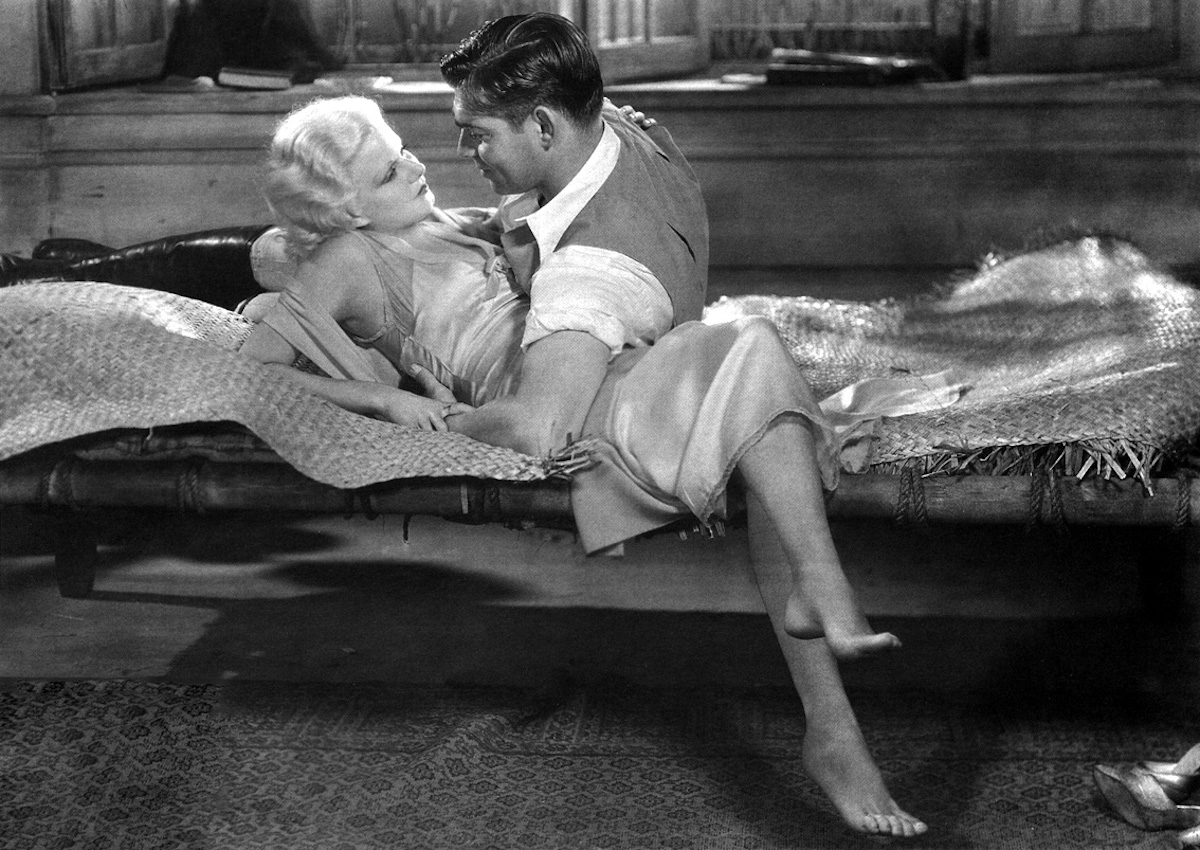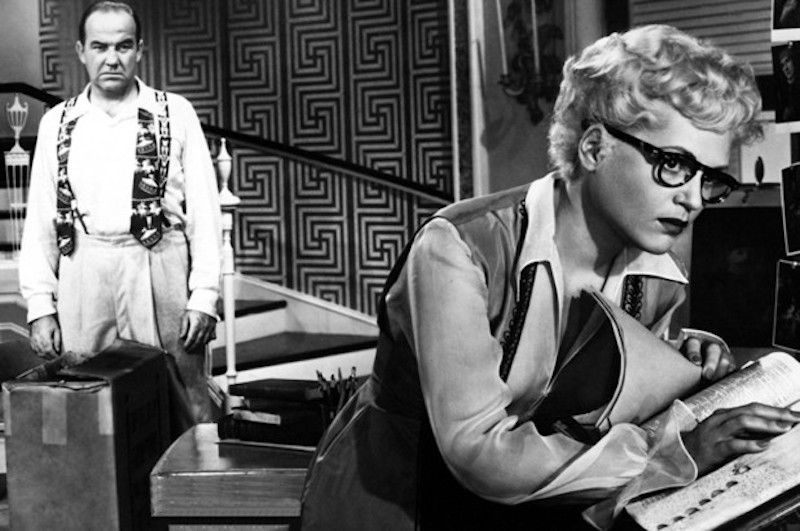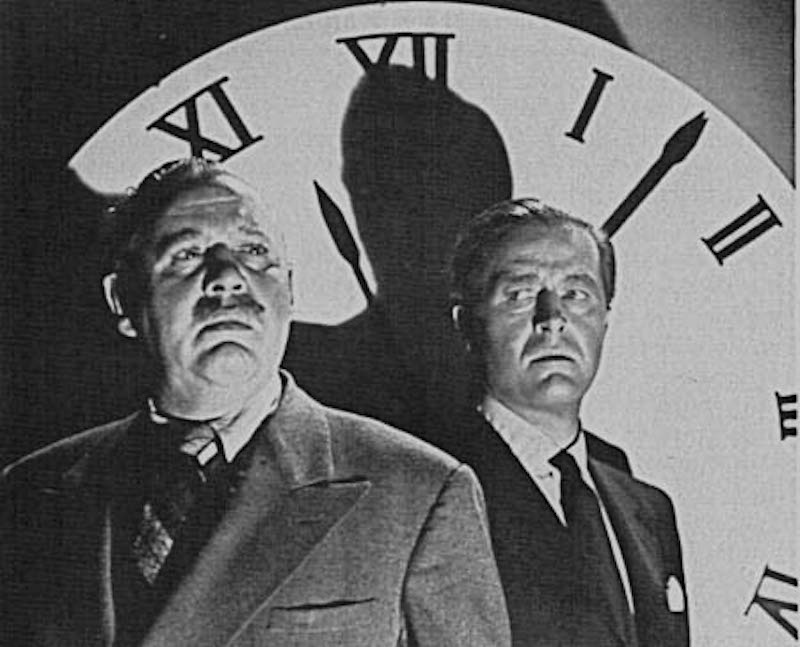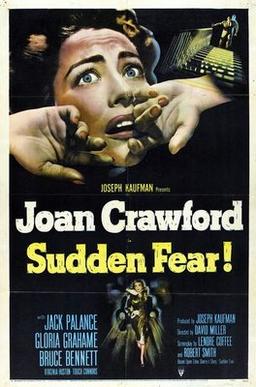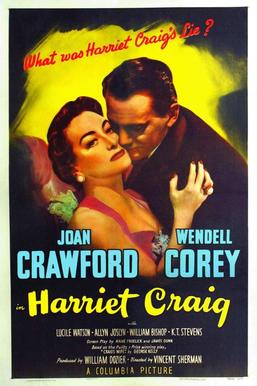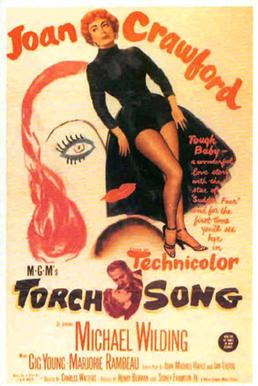
From 1932, it’s the second of six films Jean Harlow made with Clark Gable: Red Dust. (21 years later, it would be remade as Mogambo, the setting moved to Africa, with Ava Gardner in the Jean Harlow role and Grace Kelly in the Mary Astor Role. It stank. Red Dust is superior, like most Hollywood remakes, to its later imitator. The six films Gable and Harlow did together were: The Secret Six (1931); Red Dust (1932); Hold your Man (1933); China Seas (1935); Wife vs. Secretary (1936); and Saratoga (1937). Harlow died during filming of Saratoga.)
The « synopsis » according to The Movie Database (TMDb) runs thusly:
“Dennis, owner of a rubber plantation in Indochina, is involved with Vantine, who left Saigon to evade the police; but when his new surveyor, Gary, arrives along with his refined but sensual wife, Barbara, Dennis gets infatuated by her.”
TMDb
IMDb has a « a shorter and poorer way of putting it »:
“The owner of a rubber plantation becomes involved with the new wife of one of his employees.”
IMDb
Way to drain flavor completely out of a synopsis, Amazonians!
Red Dust is pretty much everything that cancel culture despises today. There’s racism, sexism, slavery, the patriarchy time 100, misogyny, misanthropy, animal abuse, cuckolding, adultery, (and behind the scenes, homophobia and violence) and probably a few other things I can’t even identify off the top of my head right now. But even if cancel culture would like to burn this film, it’s rather juvenile to think adults can’t look, read or watch something from earlier periods of our history and gain some understanding of a time in the nation’s life and adopt what we’ve just seen as our own outlook. In other words, watching Red Dust won’t make you go out and slap blond women on the butt or enslave coolies in Vietnam or any of the other multitudinous sins.
We have been wondering if a boycott TCM movement will start; pretty much everything they show is a reminder of the really evil or tawdry foundations of this country. And pretty much everything they show is also a pointer to a better future, even if that future is on hold right now while Trump, Bolsonaro, Johnson, Orban, Netanyahu, Erdogan and various ayatollahs hold power.
But all that is a digression. The film itself should be considered in context. It has it’s funny moments in the banter of Gable and Harlow, but it is a drama with a twist ending. It’s the tale of what happens when a rubber plantation owner hires a surveyor, Gene Raymond, who brings along his pretty wife, Mary Astor. While Raymond writhes on the bed with malaria, Gable and Astor spark up some flames. And in the middle of all this lands, Harlow, a brassy blond hiding out in the jungle after some unspecified misunderstandings with the gendarmerie in Saigon (pronounced, inexplicably, as “Say-gone”). There’s some business with a local tiger, some difficulties with not being able to trust the local coolies, a caricature of a cook, Willie Fung who does the grinning, giggly “so solly” bit, and inadequate bathing facilities.
The attraction here isn’t really the cultural relic/curiousity value, it’s the variation of the old man meets woman, they hate each other, they clash with sparkling dialogue and then end up together ’til death they do part. This bit has been done to death in Hollywood’s 100+ year run, but it can be freshened and redeemed if the scriptwriter is up to the job. In this case, the writer wasn’t really up to the job with the majority of the script, but for some reason, excelled with the dialogue as long as it was between Harlow and Gable. And that’s where it shines.
Of course, anything Harlow did shined, especially Dinner at Eight. Gable gets first billing here, and the movie is supposedly about him, but it’s Harlow who does the best job. The proof is in the difference between the Harlow/Gable exchanges and those of Astor/Gable. Harlow wins hands down every time she’s onscreen. Gable may have dominated the 1930s cinema with his star power, culminating in 1939’s bullshit “Lost Cause” revisionist rebel/traitor masterpiece, Gone With the Wind, but Harlow was superior in every way, at least when she was given half a chance.
Sadly, Harlow was suffering from nephritis and died of uremic poisoning during the filming of her last Gable vehicle, 1937’s Saratoga. Remarkably, she was just 26 when she died, having such an amazing career in such a short time that it’s mind-boggling to think of what she might have done with a longer life. This would be repeated in the case of Judy Holliday in the 1950s, who was an awesome actress whose life ended too soon. It would have been incredible for Harlow and Holliday to have done a film together at least once. Ah, what might have been (at least if they had been given a great script and director).
We at least have Harlow and Holliday on film fairly easy to access. Red Dust is on TCM as well as DVD.
What did reviewers have to say about Red Dust?
And that behind the scenes homophobia violence? Well, that’s the Gene Raymond story, who married Jeanette McDonald (of “Nelson Eddy and” fame), but had a rather interesting life. Producer/Director George Sidney once called Raymond “the most gorgeous thing the world has ever seen.” Seems a bit far fetched for me, but he was pretty. And therein lay the problem. We’ll let Wikipedia take over:
“Biographer Sharon Rich reported in her Nelson Eddy and Jeanette MacDonald biography, Sweethearts, that Raymond and MacDonald had a rocky marriage, with Raymond physically and emotionally abusing MacDonald, and having affairs with men. This began on their honeymoon [in 1937] when MacDonald discovered Raymond in bed with Buddy Rogers.”
Wikipedia
I’m sure that would have been pretty frickin’ hot, the most gorgeous thing in the world in bed with the equally hot Buddy Rogers. But go on:
“Rich reported that Raymond had been arrested three times, the first in January 1938, as verified by a court document, and also in England during his army service, for his behavior. Raymond’s wedding to MacDonald, orchestrated by Louis B. Mayer forced MacDonald to become Raymond’s beard and the 1938 arrest resulted in Mayer blacklisting him in Hollywood for almost two years.”
Ibid
It gets better:
“Biographer E. J. Fleming also alleged that Eddy had confronted Raymond for abusing MacDonald, who was visibly pregnant with Eddy’s child while filming Sweethearts which ended with Eddy attacking him and leaving him for dead, disguised in the press as Raymond recovering from falling down the stairs.”
Ibid
Both Rogers and Raymond, like most queers of their day, went on to other marriages with women and spent their remaining years deeply in the closet. It needs to be pointed out that:
“Raymond publicly refuted the allegations of abuse, neglect and details of his marriage to MacDonald, which were published during his lifetime.”
Ibid
That quote construction seems to leave out things like affairs with men and romping in bed with Buddy Rogers, but who knows.
Critics at the time were fairly kind and the movie made a $400,000 profit (around $6.8 million in today’s dollars). The New York Times left a review up to a writer only identified by his initials, M.H., who basically recounted the plot and, while they liked Harlow, were a little snide about Harlow’s admirers in the audience at the screening at the Capitol:
“Life on a rubber plantation in French Indo-China receives attention in “Red Dust,” a pictorial adaptation of a play by Wilson Collison which is now at the Capitol. It is a far from pleasant spot, with its heat and sudden deluges of rain, its blinding sand storms and jungle beasts. Nevertheless, the atmosphere of this tale is more interesting than its story, especially the glimpses of the men at work.
M.H., The New York Times
“Dennis Carson, played by Clark Gable, who is in charge of the plantation, avers that so long as people in other countries want balloon tires and hot-water bottles such toil must go on. The natives are indolent, which causes Carson to use the lash on them, but no sooner have they settled down to labor than they are forced often to seek shelter from a sand storm.
To this uninviting area comes the immodest Vantine, a woman from Saigon. She at least makes existence more lively for Carson, who who is not precisely hospitable to her. There is trouble on all sides for Carson.
…
[There is a recounting of the Gable/Astor entanglement and Harlow’s involvement.]
…
“… Barbara and her husband eventually leave the plantation and Vantine takes up her abode in Carson’s comfortless shack.
“The dialogue is not especially bright or strong, but some of the lines spoken by Vantine, who is impersonated by Jean Harlow, aroused laughter from the audience. Miss Harlow’s presence in the picture apparently attracted a host of other platinum blondes, for on all sides there were in the seats girls with straw-colored hair. Miss Harlow’s performance suits the part. Mr. Gable is efficient in his rôle. Miss Astor offers a striking contrast to Miss Harlow. Tully Marshall makes the most of a minor rôle, as does Gene Raymond, who appears as Willis.”
I’d agree about most of the dialogue (see choice quotes below for yourself). But it’s a pretty spot-on review from the original screening.
Anyway, regardless of its content and the soap operas behind it, Red Dust is a worthwhile, entertaining history lesson and should be taken as a positive sign of just how we’ve come in almost 90 years. Or, you know, you could ignore such Pollyanna-ish constructs and, I don’t know, burn it.



Best quotes:
Dennis Carson: Why’d you get off the boat at all? You know it doesn’t stop here again for four week, don’t you?
Red Dust
Vantine: Sure I do. Think I’m overjoyed about it? But, its just got to be, that’s all.
Dennis Carson: Well, then?
Vantine: I left the boat here for the same reason I took it at Saigon.
Dennis Carson: What reason?
Vantine: I got mixed up in a little trouble and I thought I’d stay out of town ’til the Gendarmes forgot about it.
Dennis Carson: And what a cast iron nerve you’ve got.
Vantine: You have to have in my line. But, don’t worry, big boy, I’ll stay out from under foot. I’ll even pay for my board if you insist on it nicely.
Dennis Carson: Come on, lets have it. Who are you? Where’d you come from?
Ibid
Vantine: Don’t rush me, brother. I’m Pollyanna, the Glad Girl.
Dennis Carson: Here you are kid.
Ibid
[stuffs some bills in Vantine’s cleavage]
Dennis Carson: It isn’t half enough, but, when I get down to Saigon, there’ll be more. Keep your chin up.
[pats Vantine twice on her behind]
[The bath scene]
Dennis Carson: [naked, Vantine jumps in a rain barrel] Get out of there! Say what’s the idea?
Vantine: What?
Dennis Carson: Getting in that barrel?
Vantine: Oh, I don’t know? Maybe I’m goin’ over Niagara Falls. Whoop!
Vantine: What’s the matter? Afraid I’ll – shock the duchess? Don’t you suppose she’s ever seen a French postcard?
Dennis Carson: You’ll let those curtains down if its the last bath you’ll ever take!
Vantine: Hey, where’s the reception committee? It’s been a nice little walk. Did you hear that hungry pussy cat back there?
Dennis Carson: Now, listen. This woman’s decent. You watch your language and stop running around here half naked.
Vantine: I’ll stay as comfortable as I like. Red Dust
Vantine: [sarcastically] What a pleasant little house party this is gonna be.
Ibid
Vantine: [sarcastically] I thought we might run up a few curtains and make a batch of fudge while we were planning on what to wear to the country club dance Saturday night.
Ibid
Barbara Willis: That’s a… a very polished little speech for a… barbarian.
Ibid
Vantine: Don’t mind me boys, I’m just restless.
Ibid
Gary Willis: [eating dinner] Those coolies are tough to handle, aren’t they?
Ibid
Dennis Carson: Didn’t I tell you they were a lazy bunch?
Gary Willis: Well, I mean, I didn’t know they were so sneaky about it. The minute you turn your back on ’em, they’re up to something or other they shouldn’t be doing.
[Dennis and Barbara look at each other]
Gary Willis: Are they always like that?
Dennis Carson: I’m afraid so.
McQuarg: I was telling him about that time that Malay tried to knife you in the back.
Vantine: Its a great country for that sort of thing.
Barbara Willis: I won’t stand for this! Do you think you can treat Gary like – like one of your coolies?
Ibid
Barbara Willis: We shouldn’t have done that.
Ibid
Dennis Carson: We did.
Barbara Willis: Do you mind if I stay here with you?
Ibid
Vantine: Think you can stand the company?
Barbara Willis: It’s stupid of me to be so frightened.
Ibid
Vantine: This storm isn’t the only thing that has you worried around here, is it? I saw him kick the door shut. He came out with rouge all over his mouth. I suppose he asked to use your lipstick?
[lights a cigarette]
Barbara Willis: Oh, it’s too silly. What do I mean I’m scared? It was just one of those exciting little moment things.
Ibid
Vantine: Well, watch out for the next moment, honey. It’s longer than the first.
Barbara Willis: I don’t know how it happened. I didn’t do anything. He didn’t have any reason to believe that I’d…
Ibid
Vantine: I didn’t hear any cries for help.
Barbara Willis: Oh, I don’t know what came over me. I should have stopped him. I tried, but…
Vantine: But you couldn’t. Even when you tried, could you?
Barbara Willis: No. That’s why I’m scared.
Dennis Carson: All those lame cracks won’t help you any if I come back and find you’ve been annoying her.
Ibid
Vantine: Oh, I wouldn’t touch her with your best pair of rubber gloves!
Dennis Carson: What’s the matter with you? Are you crazy?
Ibid
Vantine: Just a little nauseated. This rain seems to have uncovered a pile of garbage around here.
Dennis Carson: Stop looking through key holes. It’s bad for the eyes.

Red Dust. 1932. TCM. English. Victor Fleming (d). John Lee Mahin, Wilson Collison, Donald Ogden Stewart (w). Jean Harlow, Clark Gable, Mary Astor, Gene Raymond, Donald Crisp, Tully Marshall, Forrester Harvey, Willie Fung. (p). Harold Rosson, Arthur Edeson (c).


